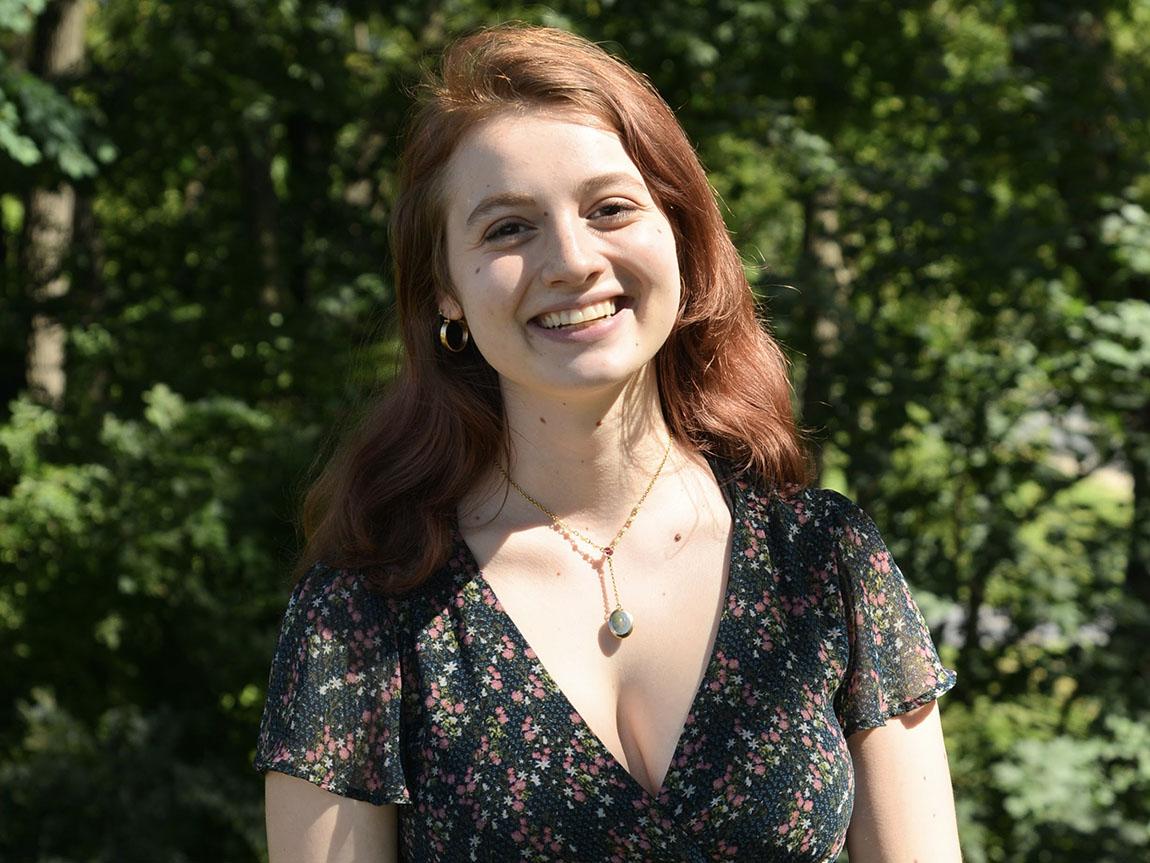Summer Research: Sophie Tomov ’26 Explores Immune Cell Development
Tomov, a pre-med biology major and French minor, is participating in the New York University Summer Research Early Identification Program (NYU SR-EIP).Wednesday, July 2, 2025 11:07 AM
 Sophie Tomov ’26
Sophie Tomov ’26More than 70 Muhlenberg students are conducting research this summer — about 60 on campus, about 10 more remotely, and a handful of others through other institutions.
Research challenges students to apply what they’ve learned in the classroom, hone their discipline-specific skills, and make an impact in their field. Learn more about Muhlenberg’s transformative summer research program.
Sophie Tomov ’26
Hometown: Havertown, Pennsylvania
Major: Biology (pre-med) with a minor in French
Describe your summer research.
My research at the [NYU Helen L. and Martin S. Kimmel Professor of Molecular Immunology Dan R.] Littman lab focuses on T-cell development. T cells are specialized immune cells that recognize and respond to specific pathogens. Their function depends on whether they express the CD8 or CD4 surface markers, which indicate if they are “killer cells” or “helper cells.” To become fully functional, T cells undergo a highly regulated developmental program, during which they commit to being either CD4 or CD8 positive. To better understand this process, I am focusing on the regulatory mechanisms that control CD4 gene expression during T-cell development.
“As I continued working with [Muhlenberg Associate Professor of Biology Giancarlo] Cuadra, taking ownership of my projects and truly understanding both the methods and the purpose behind them, something shifted. Research became a meaningful and fulfilling part of my academic life — it grew into a passion!”
Why are you interested in research generally and in this project, through the NYU SR-EIP, specifically?
When I first began research at Muhlenberg, it wasn’t my primary focus. In fact, it felt more like a necessary step toward applying to medical school. But as I continued working with [Muhlenberg Associate Professor of Biology Giancarlo] Cuadra, taking ownership of my projects and truly understanding both the methods and the purpose behind them, something shifted. Research became a meaningful and fulfilling part of my academic life — it grew into a passion!
At Muhlenberg, my work has centered on the innate immune system and gene expression. So, when I started looking for summer opportunities in a larger lab, I looked for projects involving genetics and immunology. Although the Littman lab focuses on the adaptive rather than the innate immune system, the questions being asked were still very interesting to me, and the opportunity to engage with science on a larger scale was incredibly exciting.
I applied to the NYU SR-EIP after being accepted into the Littman lab. The program supported my transition to New York and offered professional development and opportunities to present my research at several conferences. As an early identification program for top research institutions, it’s also bettered my chances at being accepted to the graduate programs I am interested in.
“Adapting to the fast-paced nature of this lab has been very challenging! I am very used to the level of support I receive from my research mentor at Muhlenberg, so adjusting to a new level of independence at this lab has been a learning curve.”
What are the most challenging and rewarding parts of your research? How is this experience shaping your understanding of what you want to do in the future?
Adapting to the fast-paced nature of this lab has been very challenging! I am very used to the level of support I receive from my research mentor at Muhlenberg, so adjusting to a new level of independence at this lab has been a learning curve, to be sure. However, this has also been quite rewarding. It is very reassuring to find that despite the hardships and bumps in the road, I still love the work I am doing here. Every misstep is a reminder that this is what I want to do! I also recently decided that I want to pursue an M.D. Ph.D., and this experience has been very affirming of that decision.
At Muhlenberg, Tomov is a research assistant in the Cuadra lab; the vice president of Alpha Epsilon Delta, the national honor society for students who plan to enter the health professions; a violin and viola player in the orchestra ensemble; the founder and coordinator of the 16 Meals Around the World Project in the Wood Dining Commons; and a peer tutor.
